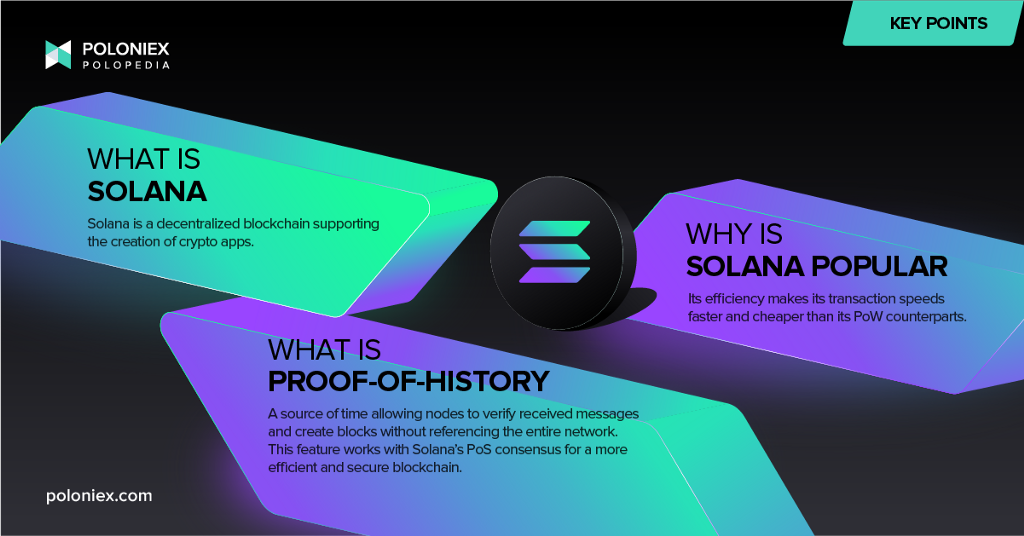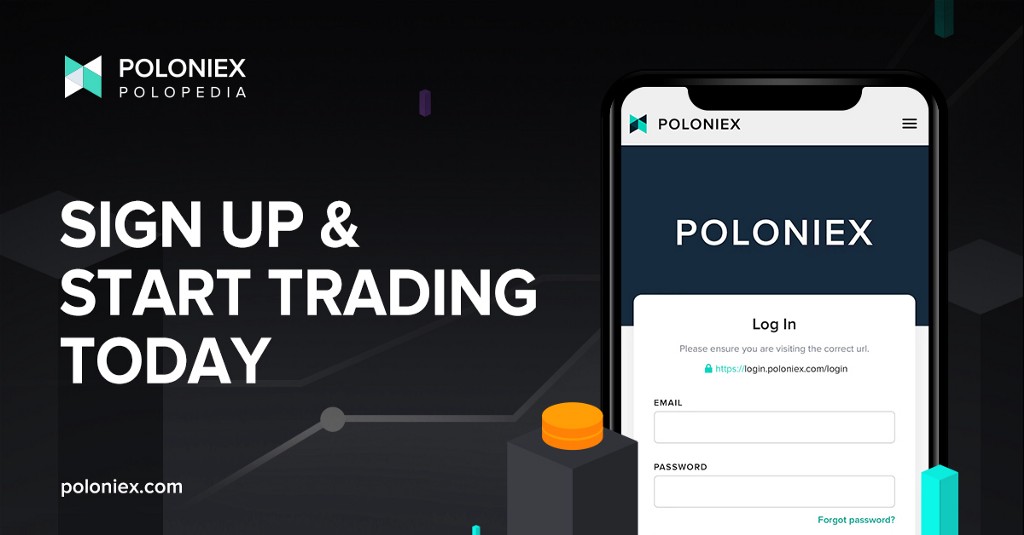
What is Solana?
Solana was founded in 2017 by Anatoly Yakovenko, and was officially launched in 2020 by the non-profit organization the Solana Foundation. Like many newer blockchain platforms, Solana’s mission is to provide an ecosystem for the creation of dApps that is scalable and gets around the system bottlenecks we’ve come to know on PoW platforms.
Solana is a high-throughput blockchain that supports the creation of a multitude of different types of crypto apps. Its blockchain utilizes a Proof-of-History (PoH) source of time for its transactions. For its consensus mechanism, it uses a Proof-of-Stake protocol that sees increased efficiency from its PoH timekeeping method.
How does Solana work?
Solana, being a decentralized blockchain platform for crypto apps, uses smart contracts to run said apps. Because of its high throughput and low transaction costs, Solana has become a popular platform for developers, as it is much faster than Ethereum.
Its key innovations, explained below, allow it to get past a lot of the problems with other blockchain platforms such as network bandwidth, high fees, low throughput, and high wait times for transaction validation. It’s most notable innovation, called Proof-of-History, enhance its value to developers as it is cheaper and faster to build and deploy dApps on its blockchain.
Proof-of-History
This is arguably Solana’s biggest claim to fame. Proof-of-History, despite how it’s called, is actually what’s called a source of time. Dubbed “a clock before consensus” on Solana’s blog, this provides a verifiable order and timing of every transaction.
This system utilizes the SHA-256 hash function, which creates a hash of which the output can’t be predicted or found without running the function. The system hashes events and transactions, applying a unique hash and count to mark the time of and between different events.
Furthermore, Solana network nodes have a cryptographic clock so that they can agree on time within the blockchain. These individual clocks allow every node to add blocks without aligning with the entire network. Put another way, this solves the problem of an entire system having to agree on time.
Solana’s other innovations
Besides Proof-of-History, Solana has other features that bolster its efficiency and scalability. You can check out founder Anatoly Yakovenko’s entries in the Solana blog for detailed information.
Tower BFT- is an improvement on Practical Byzantine Fault Tolerance (not to be confused with asynchronous Byzantine Fault Tolerance). Through the use of PoH, the network can maintain the BFT fault tolerance of 33% without sacrificing speed, because PoH provides order and timing for every transaction.
Turbine- this is what’s called a “block propagation” tool. It is designed to help address the “blockchain trilemma” of security, scalability and decentralization in that it breaks up a block into smaller packets in order to more efficiently distribute its information throughout the network. That way, information is decentralized but more scalable as the smaller packets help with bandwidth problems.
Gulf Stream- this helps with mempool processing. A mempool is a database of submitted but unconfirmed transactions. Normally, this database becomes an unwieldy backlog due to the low throughput and the bandwidth needed for propagation throughout the network. Gulf stream allows validators to forward transactions to upcoming leaders. This allows non-burdened validators to validate ahead of time. And this is all possible because PoH is able to order transactions on its own.
Sealevel- a runtime that allows the network to process many transactions in parallel.
Pipelining- Solana’s Transaction Processing Unit. This feature is focused on providing the network more speed. It does this by assigning each part of the validation and replication process of a transaction to a different part of the unit. That is, its kernel space, GPU and CPU all work in parallel to validate transactions as efficiently as possible.
Cloudbreak- this is Solana’s horizontally scaled state architecture that allows for scalability without sharding, and optimizes the system’s read/write speeds.
Archivers- these provide Solana’s distributed ledger storage. They are nodes that do not participate in consensus but instead store pieces of the network’s state.
SPL tokens
SPL tokens can be considered as Solana’s version of Ethereum token standards ERC-20, ERC-721, and ERC-1155. Like on the Ethereum network, Solana’s native token, SOL, is used for every transaction of an SPL asset.
Solana’s token
Solana’s native token is called SOL. It is Solana’s governance token and users can use it as a store of value as well as stake it to secure the platform while earning rewards. SOL is also used to pay transaction fees on the network, as well as vote on future upgrades of the platform.
How to acquire SOL
SOL is available to buy and exchange on multiple exchanges like Poloniex!

Feeling ready to get started? Sign-up is easy! Just hop on over to https://poloniex.com/signup/ to start your crypto journey🚀
was originally published in The Poloniex blog on Medium, where people are continuing the conversation by highlighting and responding to this story.

